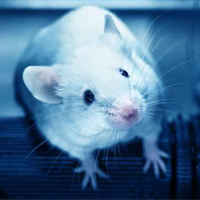Researchers Create a Mouse that Can Get MERS
What do you do when you need to test drug therapies for Middle Eastern Respiratory Syndrome but the usual animal subjects do not get the disease? Easy, you just engineer a new kind of mouse.

What do you do when you need to test drug therapies for Middle Eastern Respiratory Syndrome but the usual animal subjects do not get the disease? Easy, you just engineer a new kind of mouse.
Researchers concerned about the spread of Middle East Respiratory Syndrome are looking for therapeutics. They need to find lab animals to test promising drugs.There is one major problem. The species of camel known to carry the MERS virus is not a practical choice. And mice and other small animals do not get MERS. Enter Adam Cockrell, of the genetics at the University of North Carolina at Chapel Hill, NC.
In a successful research project he described Oct. 7 at ID Week in San Diego, CA, Cockrell told how he came up with a genetically engineered mouse that could be infected with MERS so that drugs could be tested.
In an article published earlier in the Journal of Virology, Cockrell summarized the work: "Human dipeptidyl peptidase 4 (hDPP4) was recently identified as the receptor for Middle East respiratory syndrome coronavirus (MERS-CoV) infection, suggesting that other mammalian DPP4 orthologs may also support infection. We demonstrate that mouse DPP4 cannot support MERS-CoV infection. However, employing mouse DPP4 as a scaffold, we identified two critical amino acids (A288L and T330R) that regulate species specificity in the mouse. This knowledge can support the rational design of a mouse-adapted MERS-CoV for rapid assessment of therapeutics."
The work took 18 months, he said in an interview after the presentation. "That's rather fast but we had new gene editing techniques," he added.
Cockrell said he is currently testing a vaccine for MERS. He is also testing antibiotics. So far animals that got the vaccine "were completely protected," he said.